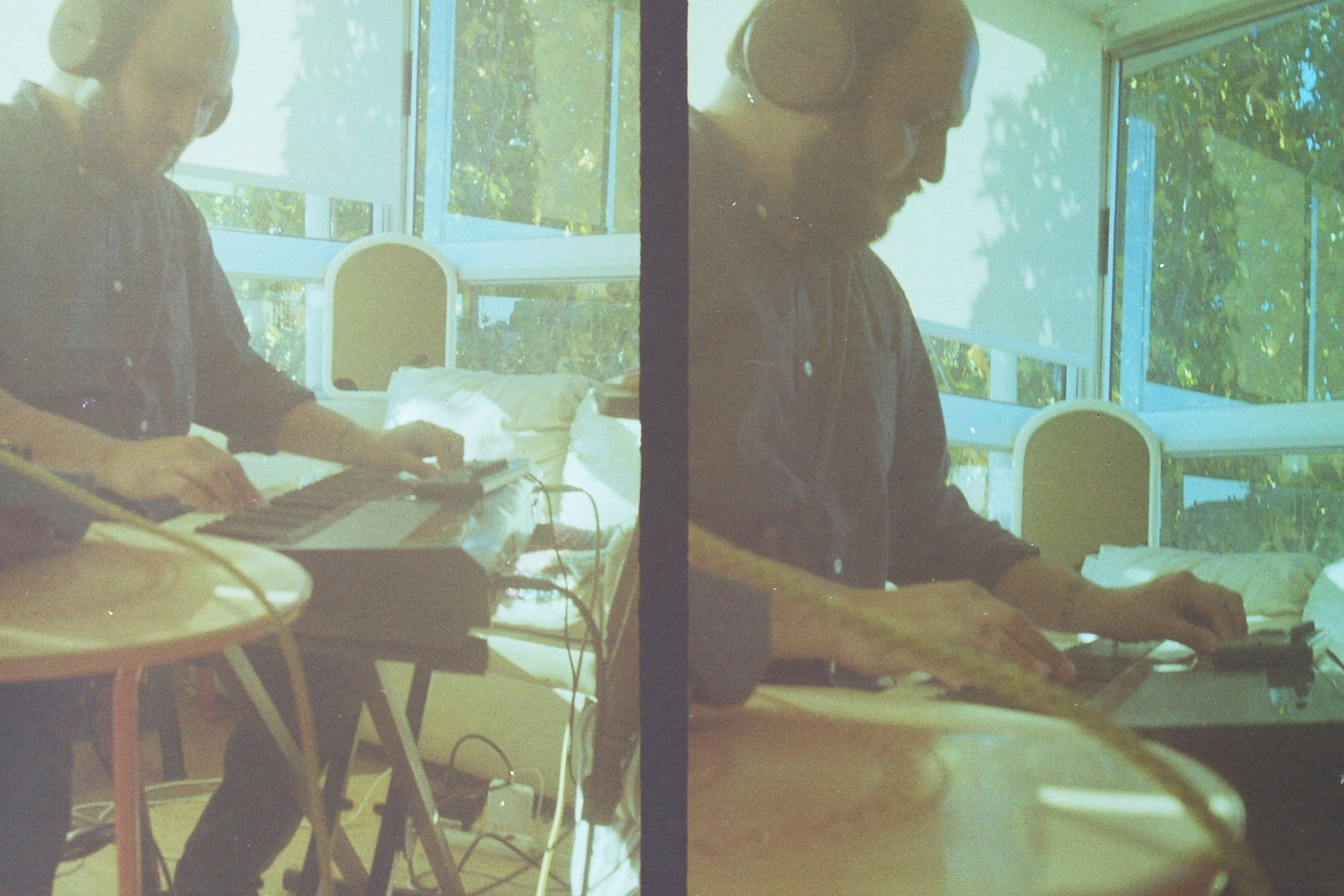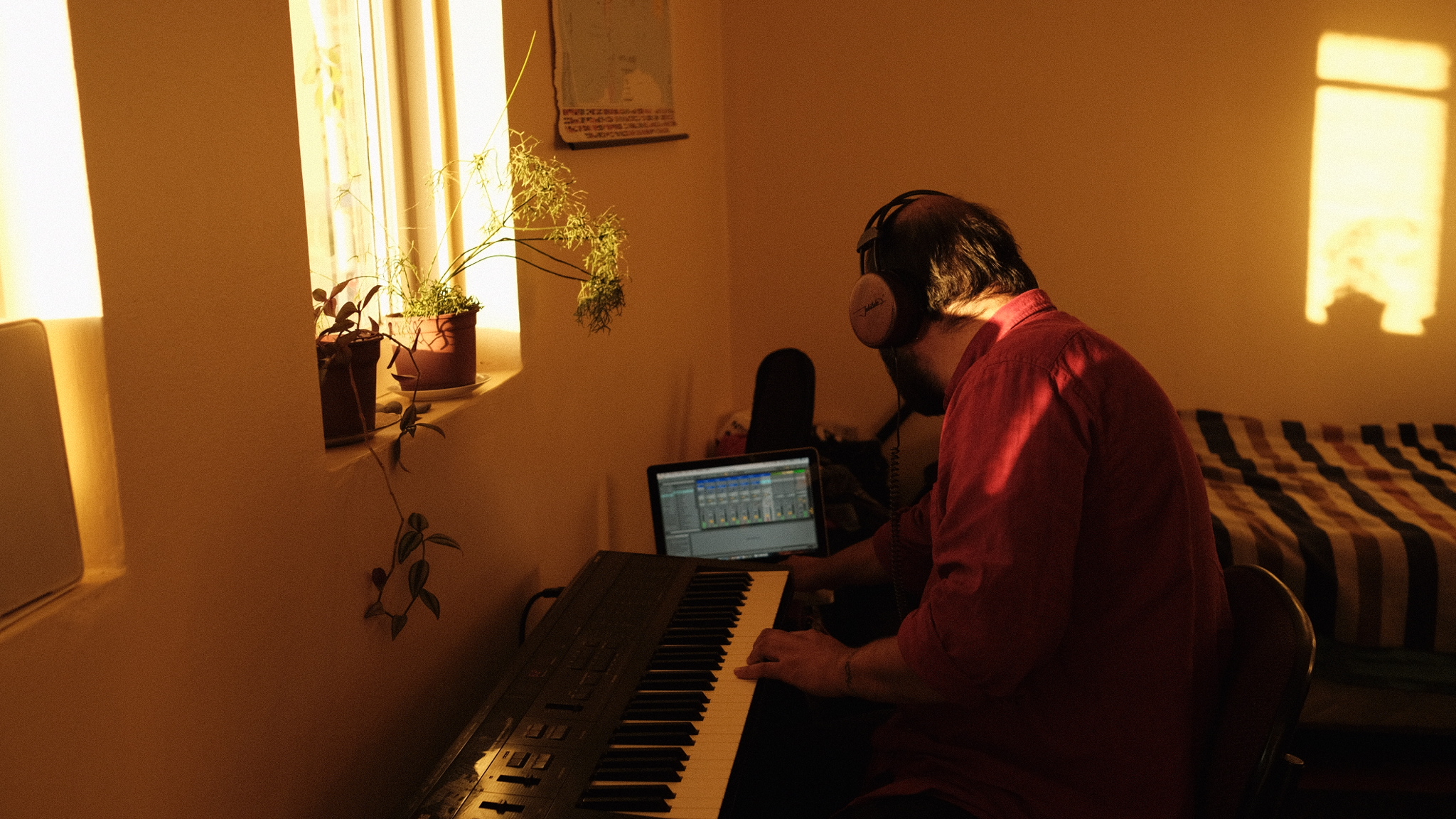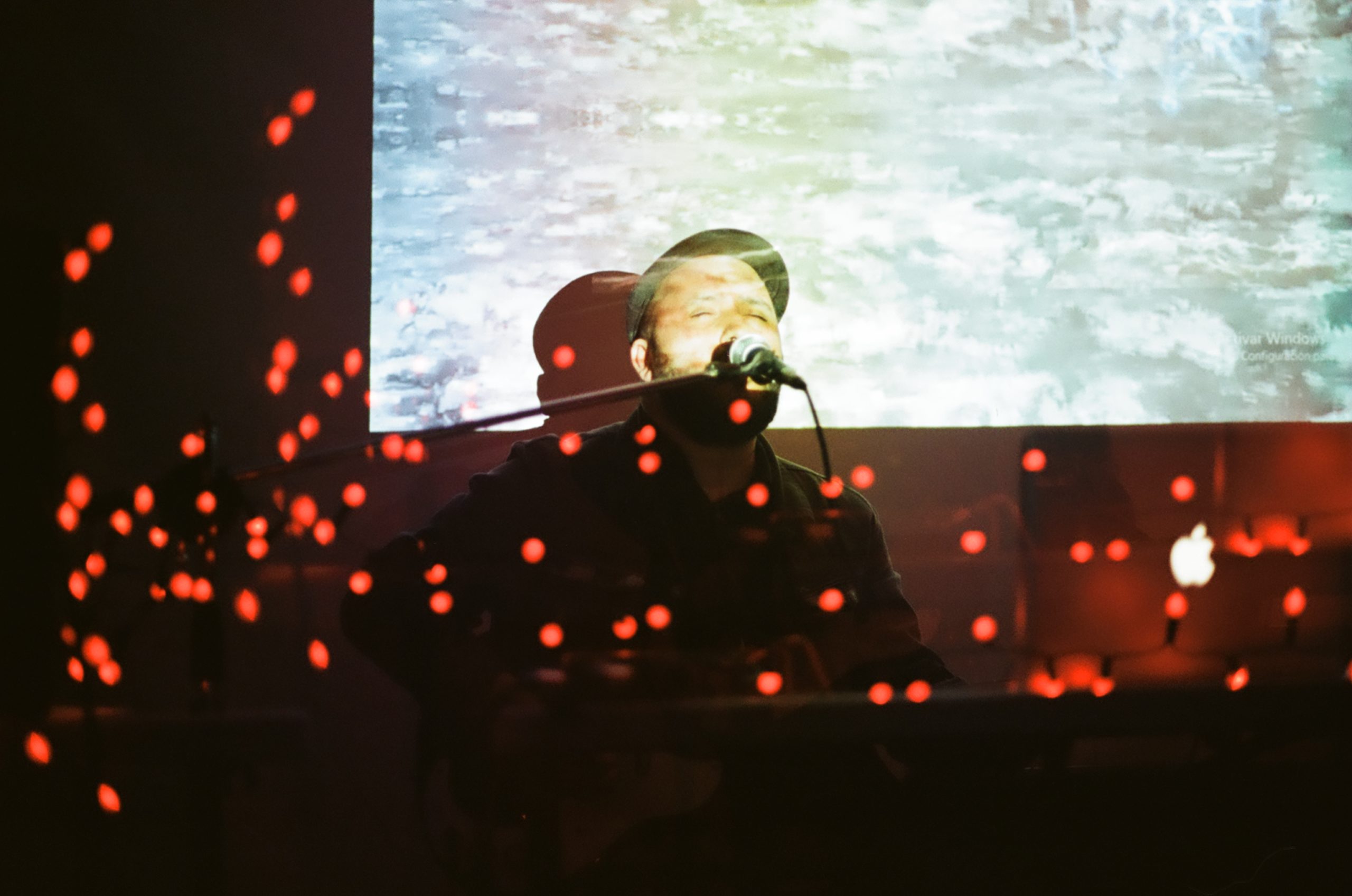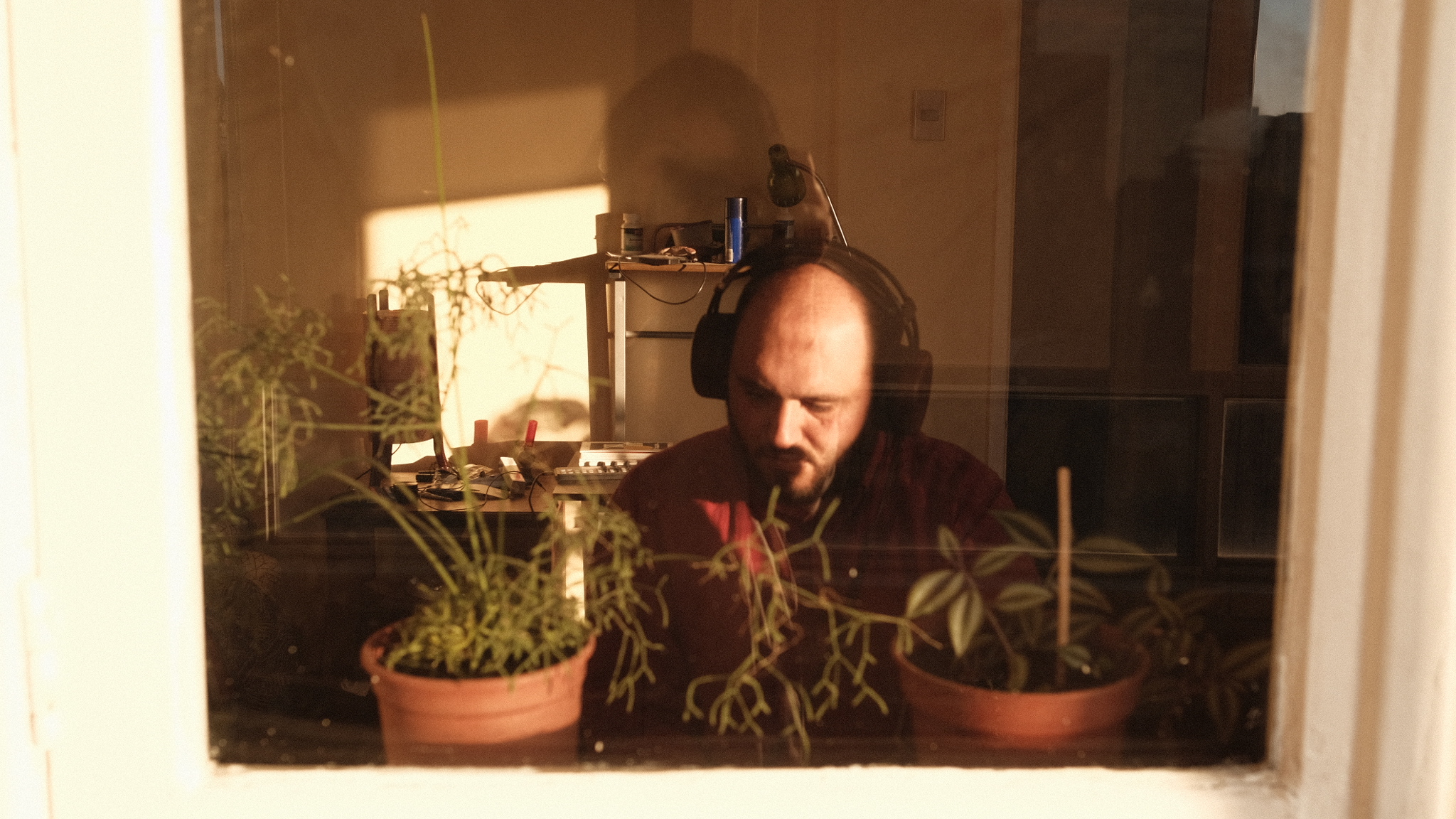A conversation with Chilean artist and music teacher, Toto Friedlaender
10.11.2020 | Text by SGBA | Edit by Renata Iberia
The two last years have been of great turmoil and readjustment for the Chilean people. Just last year, various cities of the country woke up in anger and rioted tirelessly against president Sebastian Piñera’s oppressive mandate. The protests were met with police brutality and the declaration of a state of emergency, sparking even more discontent among Chileans and the global community. This year, COVID-19 complicated the social situation even further: with 451,634 confirmed cases up to date, many Chileans have seen their basic sustenance jeopardized and in many cases unattainable.
It is in this tense climate that Chilean artists have had to find paths toward a new understanding of the creation. Toto Friedlaender, Concepción native and founder of Discos Cetáceos, shares with us how methods of DIY are becoming fundamental in terms of personal growth and staying active as an independent artist. In times when we are isolated with ourselves and a screen as the only portal to the “real” world, learning skills or perfecting them goes beyond mere entertainment. Moreover, this approach also leads to questions about the music industry, art itself and as a product.
Often unseen or discarded as a legitimate method, DIY is an act of resistance in the face of the modern world’s scarcity and oppression. As Andy Bennett and Paula Guerra state in the book DIY Cultures and Underground Music Scenes, “DIY culture also provides a space whereby people with common tastes, outlooks and experiences can come together and build new forms of community, asserting their solidarity and distinctiveness.” In this talk we present Friedlaender’s take on this matter, hoping that it may also inspire bedroom producers, DJ’s or any artist in general trying to expand and rethink their reach into the creative world.
It is in this tense climate that Chilean artists have had to find paths toward a new understanding of the creation. Toto Friedlaender, Concepción native and founder of Discos Cetáceos, shares with us how methods of DIY are becoming fundamental in terms of personal growth and staying active as an independent artist. In times when we are isolated with ourselves and a screen as the only portal to the “real” world, learning skills or perfecting them goes beyond mere entertainment. Moreover, this approach also leads to questions about the music industry, art itself and as a product.
Often unseen or discarded as a legitimate method, DIY is an act of resistance in the face of the modern world’s scarcity and oppression. As Andy Bennett and Paula Guerra state in the book DIY Cultures and Underground Music Scenes, “DIY culture also provides a space whereby people with common tastes, outlooks and experiences can come together and build new forms of community, asserting their solidarity and distinctiveness.” In this talk we present Friedlaender’s take on this matter, hoping that it may also inspire bedroom producers, DJ’s or any artist in general trying to expand and rethink their reach into the creative world.
Tracing the Steps Towards Chile’s Current Context
S: I have a friend from Argentina and he's basically stuck in Chile for five months already because Argentina doesn't let anyone come back in the country because of Corona. How is it in Chile?
T: I live in Concepción, the city in the middle of Chile. It's about a six-hour drive to Santiago. But in Santiago, for instance, the situation is really hard with all the cops, there's a lot of people getting infected with the virus and hospitals cannot take more patients. It's tough but I can go to the supermarket and get my stuff and buy some electrical cables if I need them. I'm working from home now. I'm a teacher at an Institute for music technology. I teach fields of acoustics and music post-production, stuff like that and I'm doing the classes here at my house. That's good because I have work at least. A lot of people with earnings in the music business have a lot of difficulties, they have no money coming in. So that's hard. Some parts of my monthly income come from live streams and DJ Sets but I have the backup with the institute. I am in a lucky position.
S: And with the DJ sets, is it really profitable or is it more like a little extra money?
TF: Yeah, it's more like extra money. I also work on films, doing sound but all that industry stopped. There are a lot of projects that I would have done this year but are not happening. That’s how it is. We have to accept it and take the time to embrace the now and motivate oneself to produce some good music for the future. But of course, it's hard, especially when you're an artist. You need the energy back from people. That's the way you get the good spirit. That's where I get all the inspiration. Hanging out in nice places, talking and getting new ideas and thinking about the future
S: Is there something that you did during the pandemic that you wouldn't have done before? Something you wanted to do for a very long time but never had the time? Finishing an album, reading a book…
TF: Well, I've been learning German a lot. That's good. So I've been learning and trying to watch movies and series in German. I have some very good ones not from the Second World War and I've been also learning a lot about electricity, transistors and components because I'm interested in making your own synthesizers and stuff like that. So I've been studying about it and making a lot of music. I bought a new synthesizer when the quarantine started so I've been learning about it. I've been doing three lives shows and some streams with the guys from Discos Pato Carlos.
T: I live in Concepción, the city in the middle of Chile. It's about a six-hour drive to Santiago. But in Santiago, for instance, the situation is really hard with all the cops, there's a lot of people getting infected with the virus and hospitals cannot take more patients. It's tough but I can go to the supermarket and get my stuff and buy some electrical cables if I need them. I'm working from home now. I'm a teacher at an Institute for music technology. I teach fields of acoustics and music post-production, stuff like that and I'm doing the classes here at my house. That's good because I have work at least. A lot of people with earnings in the music business have a lot of difficulties, they have no money coming in. So that's hard. Some parts of my monthly income come from live streams and DJ Sets but I have the backup with the institute. I am in a lucky position.
S: And with the DJ sets, is it really profitable or is it more like a little extra money?
TF: Yeah, it's more like extra money. I also work on films, doing sound but all that industry stopped. There are a lot of projects that I would have done this year but are not happening. That’s how it is. We have to accept it and take the time to embrace the now and motivate oneself to produce some good music for the future. But of course, it's hard, especially when you're an artist. You need the energy back from people. That's the way you get the good spirit. That's where I get all the inspiration. Hanging out in nice places, talking and getting new ideas and thinking about the future
S: Is there something that you did during the pandemic that you wouldn't have done before? Something you wanted to do for a very long time but never had the time? Finishing an album, reading a book…
TF: Well, I've been learning German a lot. That's good. So I've been learning and trying to watch movies and series in German. I have some very good ones not from the Second World War and I've been also learning a lot about electricity, transistors and components because I'm interested in making your own synthesizers and stuff like that. So I've been studying about it and making a lot of music. I bought a new synthesizer when the quarantine started so I've been learning about it. I've been doing three lives shows and some streams with the guys from Discos Pato Carlos.
"There are a lot of projects that I would have done this year but are not happening. That’s how it is. We have to accept it and take the time to embrace the now and motivate oneself to produce some good music for the future."- Toto Friedlaender
![]()
S: Since you don’t live in Santiago de Chile, what was your experience of last year’s riots?
TF: Concepción is the second-largest city in Chile, so we have some really raw riots because there's a lot of universities here. The riots were hard and I had some friends that were taken by the police and the military. Things were getting really really tough, and now the government doesn't want the people going out to the streets again, but it will happen again soon. I mean in October when the winter is coming to an end and spring is back the riots will start again and streets will be crowded with people again, and maybe that will be bad because of the virus but I don't know. Chile needs to change. The world needs to change and there's a lot of people that want to go back to the streets soon.
S: How much did the riots have to do with young people not having any chances? That is, living in poverty and no access to free education.
TF: It was not only about lack of education but basically everything. The health system also… all the levels are wrong. But we need a new Constitution and there was going to be an election to decide if we wanted a new Constitution or not. That was going to be in April. And now it's supposed to be in October. We don't know if it will actually happen or not, we don't know because of coronavirus. Here the government is very right-wing so they want to “save” the Constitution.
S: So it’s not going to happen or…?
TF: It will happen. It will happen but maybe not this year. I don't know. They just want to save their own asses and not work for the people. But things are going to change. I’m certain.
TF: Concepción is the second-largest city in Chile, so we have some really raw riots because there's a lot of universities here. The riots were hard and I had some friends that were taken by the police and the military. Things were getting really really tough, and now the government doesn't want the people going out to the streets again, but it will happen again soon. I mean in October when the winter is coming to an end and spring is back the riots will start again and streets will be crowded with people again, and maybe that will be bad because of the virus but I don't know. Chile needs to change. The world needs to change and there's a lot of people that want to go back to the streets soon.
S: How much did the riots have to do with young people not having any chances? That is, living in poverty and no access to free education.
TF: It was not only about lack of education but basically everything. The health system also… all the levels are wrong. But we need a new Constitution and there was going to be an election to decide if we wanted a new Constitution or not. That was going to be in April. And now it's supposed to be in October. We don't know if it will actually happen or not, we don't know because of coronavirus. Here the government is very right-wing so they want to “save” the Constitution.
S: So it’s not going to happen or…?
TF: It will happen. It will happen but maybe not this year. I don't know. They just want to save their own asses and not work for the people. But things are going to change. I’m certain.
Art Rethinking, Art Resisting
TF: Things are exploding in every country, people just can't live with it any more. But this crisis is not just about the virus. It's very psychological as well. It makes us ask ourselves: What do we want? What are we doing? Also understanding what you are doing and why. It's a time for big decisions, a time when we ask ourselves if we still want to do this thing or where do we want to be and get involved with. I’ve also been thinking about the importance of art, wondering why I need art.
It just makes me happy to know of the few people that listen to me on Soundcloud. I don't know why I am important to the world and what I've been thinking is that art allows us to know ourselves, in a sense that it makes you feel something and maybe something that doesn't even have a name, it’s a sensation or something emotional. Without art you couldn't know that you have the possibility for that sensation, the possibility of feeling in that certain way. If you didn't hear that chord interconnected with this other chord I would not be able to know that I could get to that emotion. Art is more just an aesthetic experience. In relation to other people, we are also getting to know each other. I know you feel it. I know I feel it. I'm generating empathy with you. We get to know what a community feels like and we know this because art makes us feel in this way. And we are learning to communicate with each other through art and feeling certain ways in all the human levels, you know?
When it comes to creating music it's the process of trying to feel something that makes me feel good. I like music that makes me feel some certain way, not the typical. I don't know typical forms of making and that's why I don't like music that has the same structure. I don't know about generic house or generic techno. I would like to be labeled as something more.
S: Sounds interesting. I mean it also takes courage to be weird and what I like about artists is exactly this. I like it when it’s not straightforward because otherwise you're just like a machine running and running and running over and over like on a wheel. For me mistakes are really sometimes gifts. Every mistake. At the end the process of making a mistake was a positive experience because I learned from it.
TF: Yeah, so for example, I like a lot of the music that it's made by people that don't know how to make music. I have a friend called Valeria Hernandez and she has a project called Niñosindigo. She was really really really mind-blowing and didn't know how to use Ableton in the beginning. But just by using the machine you learn. If you don't know what you are doing then you’re also investigating. You're just really creating things too, so that's the approach I think you need to have when you're making art. You don't have to know where you're going because navigating in dark waters is a process in itself.
S: And in terms of pop culture, do you think it is possible to feel empathy or is it just entertainment? For example, is it possible to feel empathy in a Miley Cyrus concert?
TF: I think that it's possible to feel empathy in a Miley Cyrus concert. If you're really feeling it, it's true. It can be felt. But of course there's all this product making industry. It's just working on what they need to sell and all about profiting. But if you are really feeling it then it’s not bad.
S: But I mean also when I look in techno, for example, like the Techno that's when Sven Väth for example played in the very beginning and Ellen Allien. For example, do you think they play the same techno or has it changed over time?
TF: I think it changed over time because of the context. We respond to the context. We are not humans put into nowhere, we are part of a community within a city, with the TV and radio saying things at every moment. But if you’re making art it must be different because you are working within a specific context. So that’s why you need to decide: are you making a product or something special?
It just makes me happy to know of the few people that listen to me on Soundcloud. I don't know why I am important to the world and what I've been thinking is that art allows us to know ourselves, in a sense that it makes you feel something and maybe something that doesn't even have a name, it’s a sensation or something emotional. Without art you couldn't know that you have the possibility for that sensation, the possibility of feeling in that certain way. If you didn't hear that chord interconnected with this other chord I would not be able to know that I could get to that emotion. Art is more just an aesthetic experience. In relation to other people, we are also getting to know each other. I know you feel it. I know I feel it. I'm generating empathy with you. We get to know what a community feels like and we know this because art makes us feel in this way. And we are learning to communicate with each other through art and feeling certain ways in all the human levels, you know?
When it comes to creating music it's the process of trying to feel something that makes me feel good. I like music that makes me feel some certain way, not the typical. I don't know typical forms of making and that's why I don't like music that has the same structure. I don't know about generic house or generic techno. I would like to be labeled as something more.
S: Sounds interesting. I mean it also takes courage to be weird and what I like about artists is exactly this. I like it when it’s not straightforward because otherwise you're just like a machine running and running and running over and over like on a wheel. For me mistakes are really sometimes gifts. Every mistake. At the end the process of making a mistake was a positive experience because I learned from it.
TF: Yeah, so for example, I like a lot of the music that it's made by people that don't know how to make music. I have a friend called Valeria Hernandez and she has a project called Niñosindigo. She was really really really mind-blowing and didn't know how to use Ableton in the beginning. But just by using the machine you learn. If you don't know what you are doing then you’re also investigating. You're just really creating things too, so that's the approach I think you need to have when you're making art. You don't have to know where you're going because navigating in dark waters is a process in itself.
S: And in terms of pop culture, do you think it is possible to feel empathy or is it just entertainment? For example, is it possible to feel empathy in a Miley Cyrus concert?
TF: I think that it's possible to feel empathy in a Miley Cyrus concert. If you're really feeling it, it's true. It can be felt. But of course there's all this product making industry. It's just working on what they need to sell and all about profiting. But if you are really feeling it then it’s not bad.
S: But I mean also when I look in techno, for example, like the Techno that's when Sven Väth for example played in the very beginning and Ellen Allien. For example, do you think they play the same techno or has it changed over time?
TF: I think it changed over time because of the context. We respond to the context. We are not humans put into nowhere, we are part of a community within a city, with the TV and radio saying things at every moment. But if you’re making art it must be different because you are working within a specific context. So that’s why you need to decide: are you making a product or something special?




